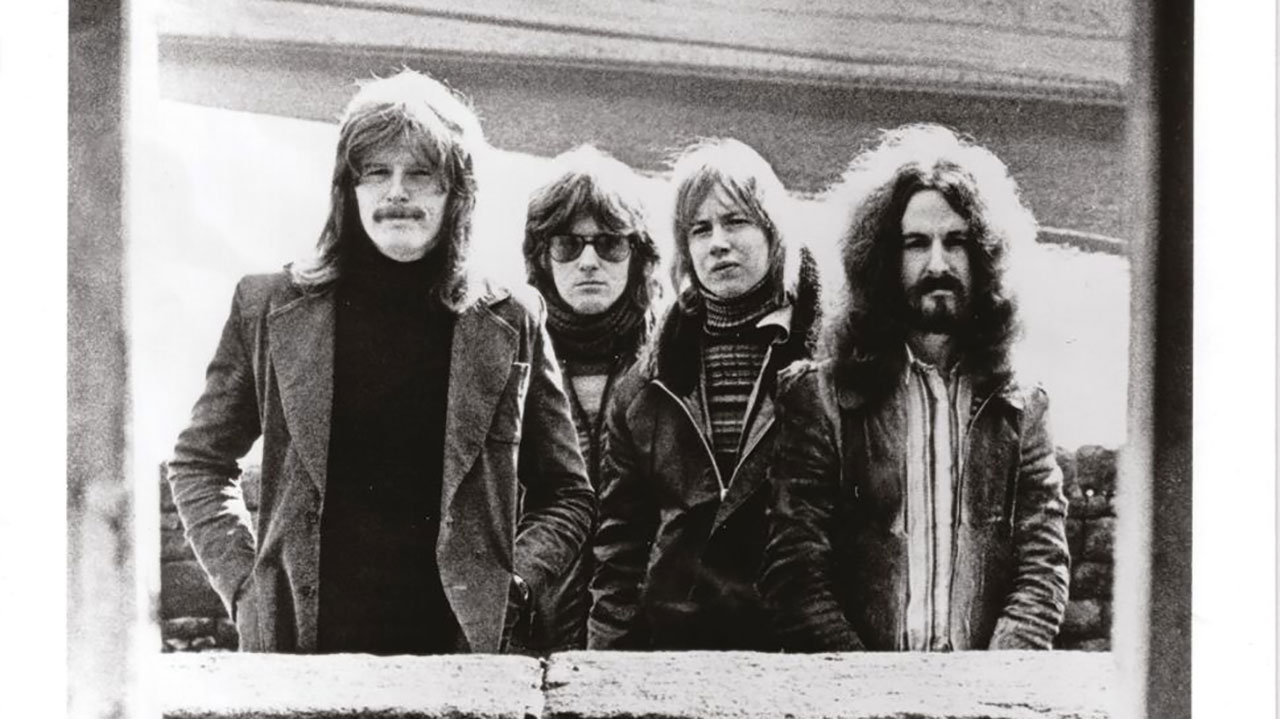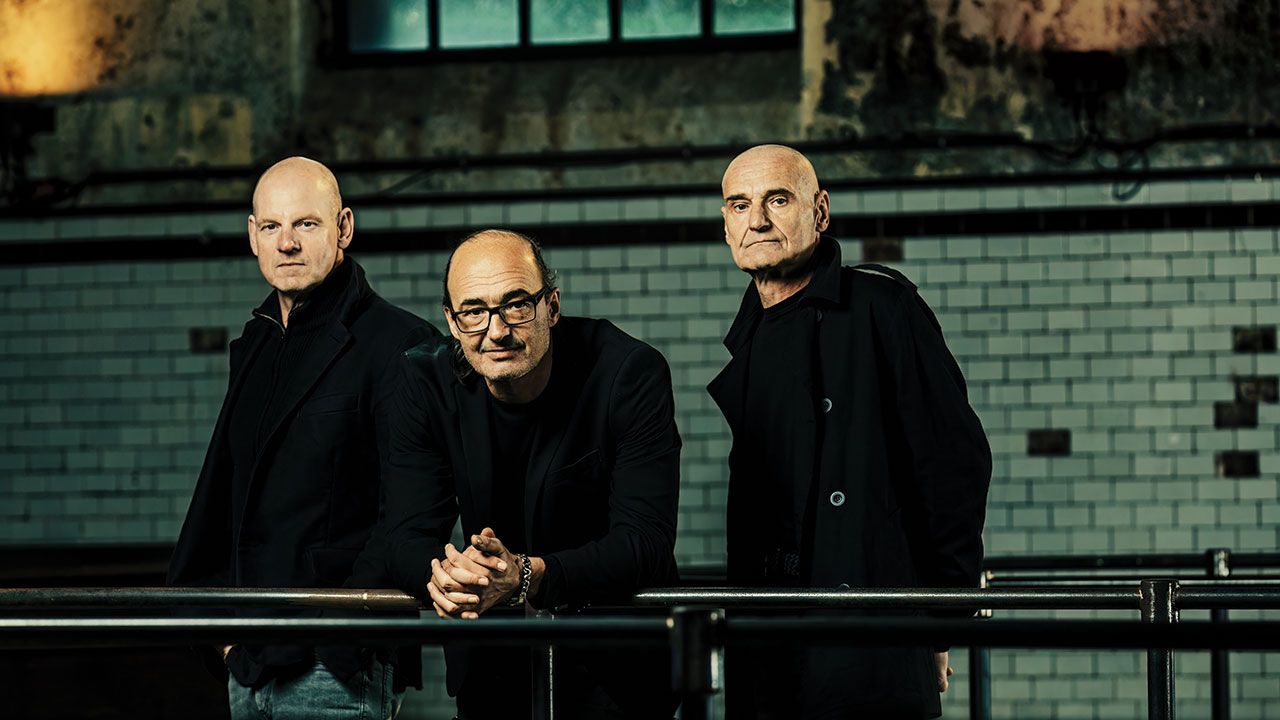
Select the newsletters you’d like to receive. Then, add your email to sign up.
You are now subscribed
Your newsletter sign-up was successful
Want to add more newsletters?
Oldham certainly has its share of famous people, actresses Sarah Lancashire and Siobhan Finneran from TV's Happy Valley. And of course there were Eric Sykes, Bernard Cribbins and Warren Clarke. When it comes to music, from melodic rockers Dare there were Darren Wharton and Brian Cox, although the latter is probably best known as a professor of physics on TV these days.
But when it comes to prog, there's no argument. Take a bow Barclay James Harvest! Founded in Oldham in 1966 by guitarist/vocalist John Lees, bassist/vocalist Les Holroyd, drummer/percussionist Mel Pritchard and keyboardist/vocalist Stuart "Woolly" Wolstenholme, BJH went on to create a series of excellent albums in the melodic and symphonic prog vein, creating several bona fode prog classics along the way.
They played to a quarter of a million people in old West Berlin at a free concert in 1980 (immortalised in the band's 1982 live album Berlin: A Concert For The People) and were the first Western rock band to perform in an open-air concert in East Germany two years before the Berlin Wall fell, to 170,000 in 1987 (released as Glasnost in 1988).
The band now exists in two camps, John Lees Barclay James Harvest and Barclay James Harvest featuring Les Holroyd, following an acrimonious split in 1988, and drummer Mel Pritchard sadly died in 2004 and Woolly Wolstenholme in 2010.
But here's thirteen reminders of what an awesome band Barclay James Harvest were. Enjoy...

She Said (1971)
The eight-minute opening track from the band's second album, Once Again, She Said kicks off as a strident rocker, before hitting a quiet, orchestral mid-section featuring a recorder solo from John Lees. Originally two different Les Holroyd songs, Miss Bailey and I Will Always Love Her, which, at the suggestion of Woolly Wolstenholme, were combined into the one epic track. A wonderful indicator of what there was to come from the band over the ensuing years.
Mocking Bird (1971)
Also from the band's second album, 1971's Once Again, Mocking Bird (later adapted to Mockingbird) is probably the band's first bona fide classic, from what is arguably their first classic album. Written by guitarist and singer John Lees several years earlier while he was living with the parents of his future wife, Olwen, it's a perfect example of the mastery of melody the band had, allied to a desire to push the musical envelope, and which would serve them well over the years.
Sign up below to get the latest from Prog, plus exclusive special offers, direct to your inbox!
Medicine Man (1971)
The opening track of the second album Barclay James Harvest released in 1971, Barclay James Harvest And Other Short Stories. Medicine Man on the studio album is imbued with a haunting orchestral feel, although this video, from 1974, is over three times as long as its studio counterpart and seriously rocked up, with some incendiary guitar soloing from John Lees, reminding you of what an underrated guitarist he is.
The Poet/After The Day (1971)
Although two separate tracks on Barclay James Harvest And Other Short Stories, these final two pieces on the album segue together into a majestic piece of music that highlights the symphonic grandeur of the band, the orchestral passages melding with Woolly's wonderful Mellotron work and building to a suitably epic climax. A real highlight of the recent, and apparently last BJH tour from John Lees, although thankfully one-off gigs haven't been discounted.
Child Of The Universe (1974)
The opening track from the band's fifth studio album, Everyone Is Everybody Else, which was also Barclay James Harvest's first album for their new label Polydor, a relationship that would blossom as the decade wore on. The album was produced by Rodger Bain, who had produced the first three Black Sabbath albums, and although the relationship between him and the band was said to be strained - Woolly Wolstenholme's only contribution, Maestoso, was also left off the original album - the album did secure the band a session with John Peel.
Hymn (1977)
Yet another opening track, this time from the band's excellent Gone To Earth album, despite its title Hymn has nothing to do with religion, but is rather is a slow-building epic song warning against the dangers of drugs, and actually dedicated to some of rock music's most well-known casualties: Jimi Hendrix, Janis Joplin and Free guitarist Paul Kossoff.
Poor Man's Moody Blues (1977)
A song John Lees wrote in response to a journalist referring to BJH as "a poor man's Moody Blues", penning a song deliberately in the Moodies' own style. Although a huge hit with the band's fan base, Lees has since referred to the song as a mistake, while bassist Les Holroyd allegedly once apologised to a less-than-impressed Justin Hawyard.
Loving Is Easy (1978)
By 1978 bands of a more progressive ilk were facing an ill wind of change blowing through the music scene. Always adept at penning songs as well as suites, the opening track from 1978's XII leaned very much toward the former, adding some guitar grit to proceedings. Not every prog band trying to adapt to changing times got it right, but here BJH did!
Berlin (1978)
Another track from 1978's XII, Berlin took on a life on its own when the band performed a free concert in front of the Reichstag in what was then West Berlin, with an estimated attendance of 250,000 people. The concert was released as a live album, taking the title Berlin: A Concert For The People, in 1982, a pivotal moment in the band's career
Life Is For Living (1981)
Another uptempo, shorter number, this time from the band's Turn Of The Tide album, which showed the band trying to adapt with the changing times. The song's sweet melodic refrain and jaunty keyboards may seem at odds with the likes of Mocking Bird and Hymn, but it's the band's most played song on Spotify with almost 15 million streams. Hymn comes in second with just over 11 million, in case you were wondering.

Victims Of Circumstance (1984)
The title track from BJH's 1984 album. The 80s and 90s could be unkind to many of the 70s prog acts, struggling to find a foothold - imagine being dismissed as irrelevant and over the hill while in your 30s? Barclay James Harvest didn't always get it right - calling themselves simply BJH for 1990's Welcome To The Show irked many fans for example. But Victims Of Circumstance showed the band could write material that satisfied older fans (well, some of them, anyway) and pushed the band's sound on too.
Kiev (1987)
Certainly topical at the moment, Keiv is a love letter to the Ukrainian capital which has since been under bombardment from Russian bombs for over a year. It's taken from the band's 1987 album Face To Face, a time when it seemed BJH were, like many of their ilk, being dismissed by the mainstream media. They're still with us some 40 years later however, which makes a mockery of such suggestions!
On Leave (2013)
By 2013 it was only John Lees left, Lees and Holroyd acrimoniously splitting into their separate factions in 1998, and with drummer Mel Pritchard having died in 2004 Woolly Wolstenholme in 2010. North was the first album of all new material from John Lees under the BJH moniker for 14 years and probably far better than many hoped for. A strong collection of songs that not only satisfied much of the fanbase but sold well too. The nine-minute odd On Leave showed Lees could still weave lengthy prog magic too, when the mood took him.






